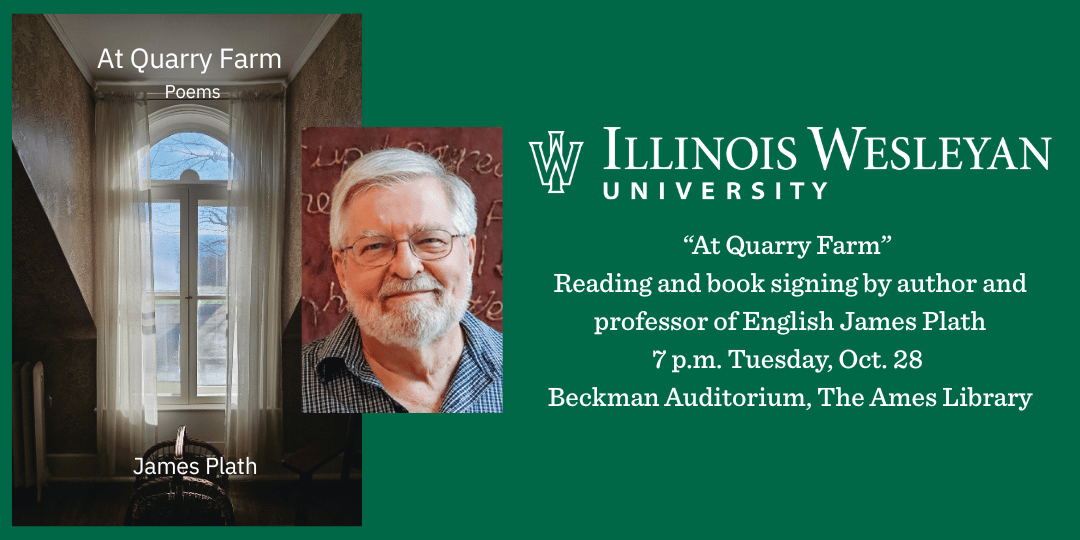
BLOOMINGTON, Ill. — While visiting the place where Mark Twain penned some of his most
famous tales, Illinois Wesleyan Professor of English James Plath couldn’t help but
be inspired.
In 2023, Plath completed a research fellowship at Quarry Farm in Elmira, New York, which was once Twain’s summer home. Plath’s most recent publication, “At Quarry Farm,” is a book of poetry that pays tribute to the history of the property.
Plath will give a reading from the book and show photos from the Farm at 7 p.m. on Tuesday, Oct. 28, in Beckman Auditorium, The Ames Library. The event is free and open to the public. Any students in attendance can enter a drawing to win one of three copies of the book. Copies will also be available for purchase at the event and are sold online through the publisher Kelsay Books.
“Although my project (as a Quarry Farm Fellow) was to do research for an essay on how Twain modeled being a professional writer for both Hemingway and Updike, I found myself captivated by the house, its objects and its spirits,” said Plath. “I felt compelled not only to do the research I was there to do, but also to write creatively about the house and its former inhabitants. If I hadn’t done so, it would have been an opportunity lost.”
The first drafts of every poem in “At Quarry Farm” were written at the farm itself. This volume is Plath’s first full-length poetry collection and is the first time he has attempted to tell the story of a place and its people in a collection “that reads like a poetic journal, meant to be read from start to finish.”
“Only scholars working in Twain studies are allowed inside the house (at Quarry Farm), so I sought to share my experience with others while also paying tribute to some pretty amazing people who had lived there once,” Plath said.
Plath said two of the poems, “Roughing It” and “Spiritualism,” connect most pointedly to his own life experiences.
"But of course any time someone tries to tell someone else’s story, especially in poetic form, the author’s voice, style and tone will always break through," he said. "It isn’t just Twain’s story, or his sister-in-law’s, or the tenant farmer’s who likely inspired the character of Jim from 'The Adventures of Huckleberry Finn.' It’s my version of their stories.”